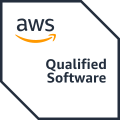In the rapidly evolving business landscape of Australia, staying ahead of the competition and driving organisational success requires a strategic approach that aligns teams, sets ambitious goals, and promotes a culture of continuous improvement. Enter OKRs (Objectives and Key Results), a goal-setting framework that has taken the business world by storm. In this article, we will explore the power of OKRs and why they are a game-changer for Australian business leaders looking to achieve unparalleled success.
What are OKRs?
OKRs are a goal-setting methodology pioneered by Intel and popularised by industry giants like Google and Netflix. The framework establishes clear, measurable objectives that drive organisational alignment and foster a results-oriented culture. Each objective is accompanied by a set of key results, which are measurable outcomes that indicate progress and success towards the objective.
Alignment and Focus:
One of the key benefits of OKRs is their ability to align teams and individuals towards a common vision. By cascading objectives throughout the organisation, every employee becomes aware of their role in achieving overarching goals. This alignment promotes collaboration, breaks down silos, and creates a shared sense of purpose. Australian business leaders can leverage OKRs to ensure everyone is moving in the same direction and working towards the collective success of the organisation.
Ambitious Goal Setting:
OKRs encourage businesses to set ambitious, yet achievable, goals. By aiming high and pushing beyond comfort zones, organisations foster a culture of innovation and growth. OKRs provide a framework that empowers Australian business leaders to set stretch goals, inspiring teams to think bigger and challenge the status quo. With OKRs, you can unlock untapped potential within your organisation and achieve remarkable results.
Measurable Results
OKRs prioritise measurable outcomes, which makes tracking progress and evaluating success more objective. The key results associated with each objective serve as concrete benchmarks, allowing Australian business leaders to monitor progress and make data-driven decisions. By providing clarity on what success looks like, OKRs empower organisation's to focus their efforts on the most impactful actions and identify areas that require course correction.
Continuous Learning and Adaptability:
The OKR framework encourages a culture of continuous learning and adaptability. By setting time-bound objectives and reviewing key results regularly, Australian business leaders can identify what is working and what needs adjustment. OKRs facilitate transparency and provide a platform for open discussions, allowing teams to learn from failures, celebrate successes, and iterate on strategies. This iterative approach enables businesses to stay agile and responsive in a dynamic marketplace.
Motivation and Employee Engagement:
OKRs foster employee motivation and engagement by providing a clear sense of direction and purpose. When individuals can connect their daily tasks to broader objectives, they feel a sense of ownership and fulfilment. Regular check-ins and progress updates help employees stay motivated and aligned with the organisations goals, boosting productivity and job satisfaction. Australian business leaders can leverage OKRs to create a positive work environment that encourages high performance and personal growth.
Conclusion
In the ever-evolving landscape of Australian business, OKRs offer a transformative framework that can propel organisations to unprecedented levels of success. By fostering alignment, setting ambitious goals, promoting measurable results, encouraging adaptability, and enhancing employee engagement, OKRs provide a roadmap for achieving extraordinary outcomes. Australian business leaders who embrace OKRs will not only drive their organizations towards greater success but also foster a culture of innovation, collaboration, and continuous improvement. So, why wait? Harness the power of OKRs and embark on a journey of exceptional growth and achievement.







.jpeg)








